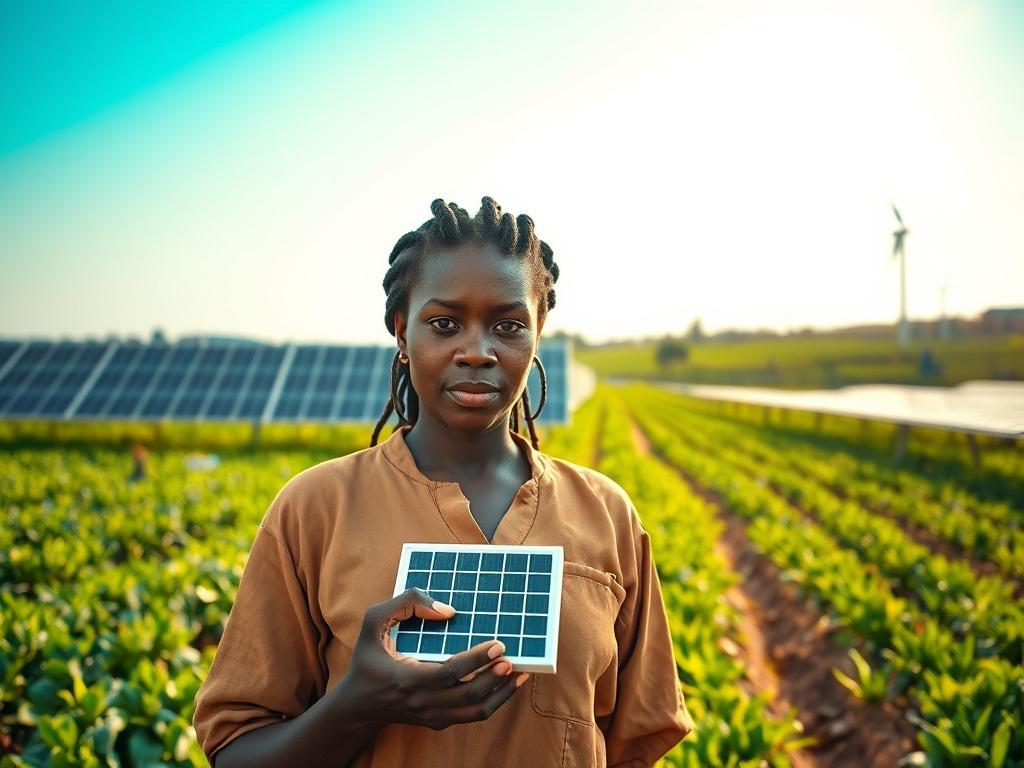
The urgency of climate change calls for immediate and innovative solutions, particularly in regions like Africa that are disproportionately affected by climate shocks. As the continent faces increasing environmental challenges, the collaboration between Africa and Denmark in the realm of green technology emerges as a promising avenue for sustainable development. This partnership harnesses renewable energy, climate-smart agriculture, and collaborative cross-border projects to create resilience against climate impacts, ensuring that both nations can thrive amid evolving environmental conditions.
In this blog post, we delve into the dynamic green tech collaboration between Africa and Denmark, highlighting how these efforts can catalyze a significant climate transition. By exploring innovative strategies and breakthrough projects, we shed light on how this alliance not only addresses pressing climate challenges but also paves the way for economic growth and sustainable practices. Through combined expertise and resources, both regions are well-positioned to mitigate climate risks and embrace an era of green innovation that benefits communities and ecosystems alike.
Exploring green tech collaboration between Africa and Denmark for sustainable solutions
As the world grapples with the impacts of climate change, the importance of cross-border collaboration in green technology becomes increasingly apparent. Africa, with its diverse ecosystems and unique challenges, can greatly benefit from Denmark's expertise in sustainable practices. By fostering partnerships focused on green tech, both regions can share innovative solutions aimed at addressing climate shocks. This collaboration opens doors for knowledge exchange, technology transfer, and investment opportunities that can drive sustainable development in Africa, while Denmark also gains valuable insights from Africa's distinct environmental challenges.
Through initiatives like joint research projects and innovation hubs, Denmark and African nations can cultivate a robust ecosystem for green technology. Collaboration can encompass various sectors, including renewable energy, climate-smart agriculture, and waste management. Leveraging Denmark’s advancements in wind energy and smart farming techniques can enhance Africa's capacity to adapt to climate-related disruptions. By working together, Africa and Denmark can lay the groundwork for a greener, more resilient future, ultimately benefiting local communities and fostering economic growth.
Harnessing renewable energy: A joint effort to combat climate shocks in Africa
Africa faces a multitude of climate challenges, including extreme weather events and fluctuating agricultural productivity. To tackle these issues, collaborative efforts between African nations and Denmark aim to harness renewable energy sources such as wind, solar, and hydropower. By investing in renewable infrastructure, both partners create sustainable energy solutions that can enhance resilience against climate shocks. This joint commitment not only empowers local communities with access to clean energy but also fosters economic growth, reducing reliance on fossil fuels and making strides toward a greener future.
The collaboration between Denmark and Africa extends beyond mere investment, as knowledge transfer and technology sharing play crucial roles in this partnership. Danish companies bring advanced expertise in renewable technologies, while African innovators adapt these solutions to local contexts, ensuring they are viable and effective. For example, solar energy initiatives in East Africa have transformed rural areas by providing electricity for schools, health facilities, and small businesses. This synergy not only contributes to climate resilience but also improves quality of life for the communities involved, illustrating the impact of green tech collaboration in addressing the urgent climate crisis facing the continent.
Innovative cross-border projects: Transforming climate-smart agriculture through partnership
Cross-border projects between African nations and Denmark present a unique opportunity to enhance climate-smart agriculture across the continent. By pooling resources and expertise, these collaborative ventures can create sustainable farming practices that address the challenges posed by climate shocks. Denmark, with its advanced agricultural technologies, can play a pivotal role in transferring knowledge and innovations to African farmers. For instance, implementing precision agriculture techniques can help optimize resource use, increasing crop yields while minimizing environmental impact.
Furthermore, these partnerships can foster local resilience against climate fluctuations by promoting diverse cropping systems and sustainable land management. Exchange programs and workshops are instrumental in ensuring that farmers benefit from climate-smart innovations adapted to local conditions. As African countries work together with Denmark, they can develop integrated frameworks that not only enhance food security but also empower communities economically. This collaborative approach lays the groundwork for a robust agricultural ecosystem that prioritizes sustainability, demonstrating how cross-border initiatives can effectively tackle the pressing climate challenges faced by the region.

